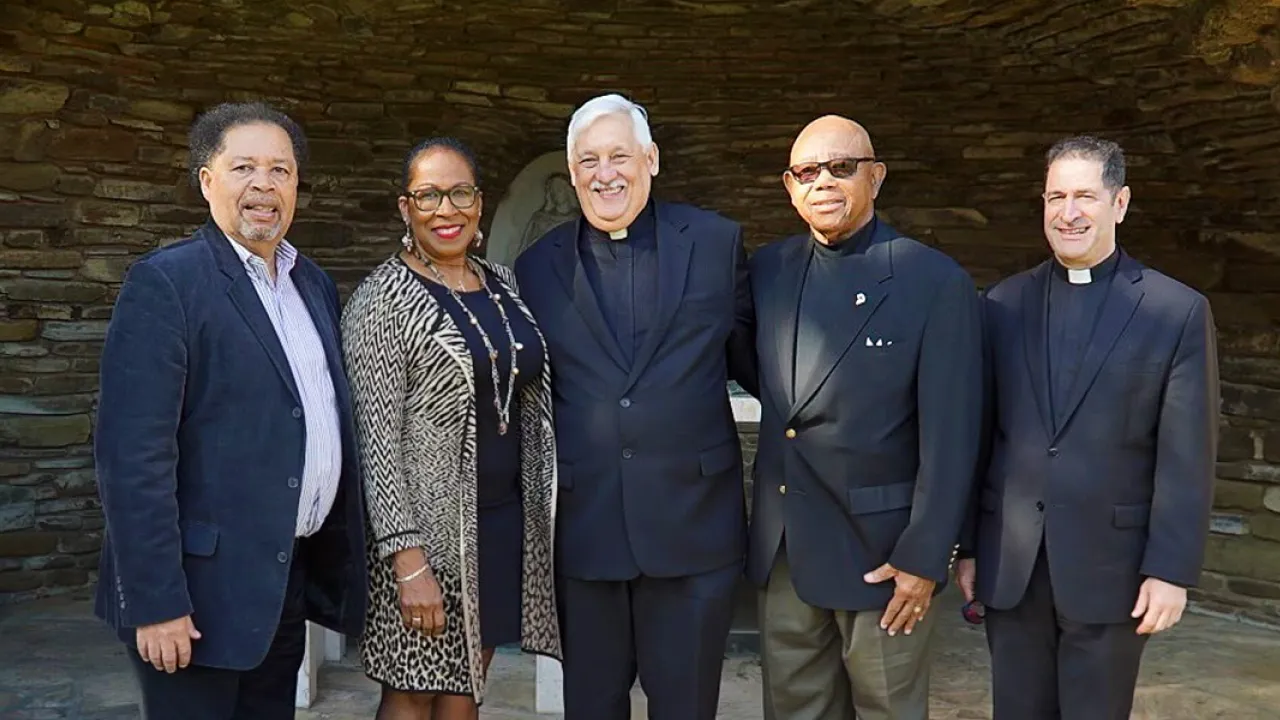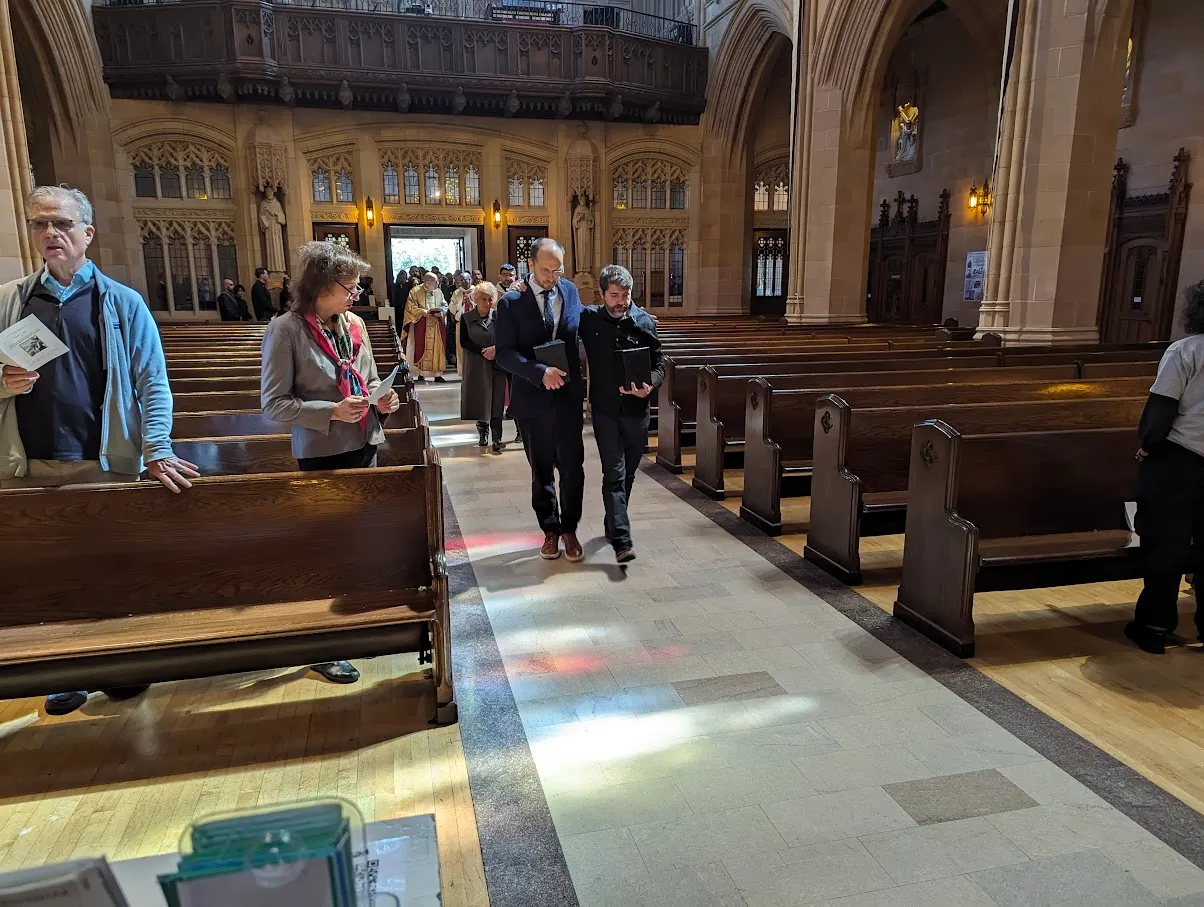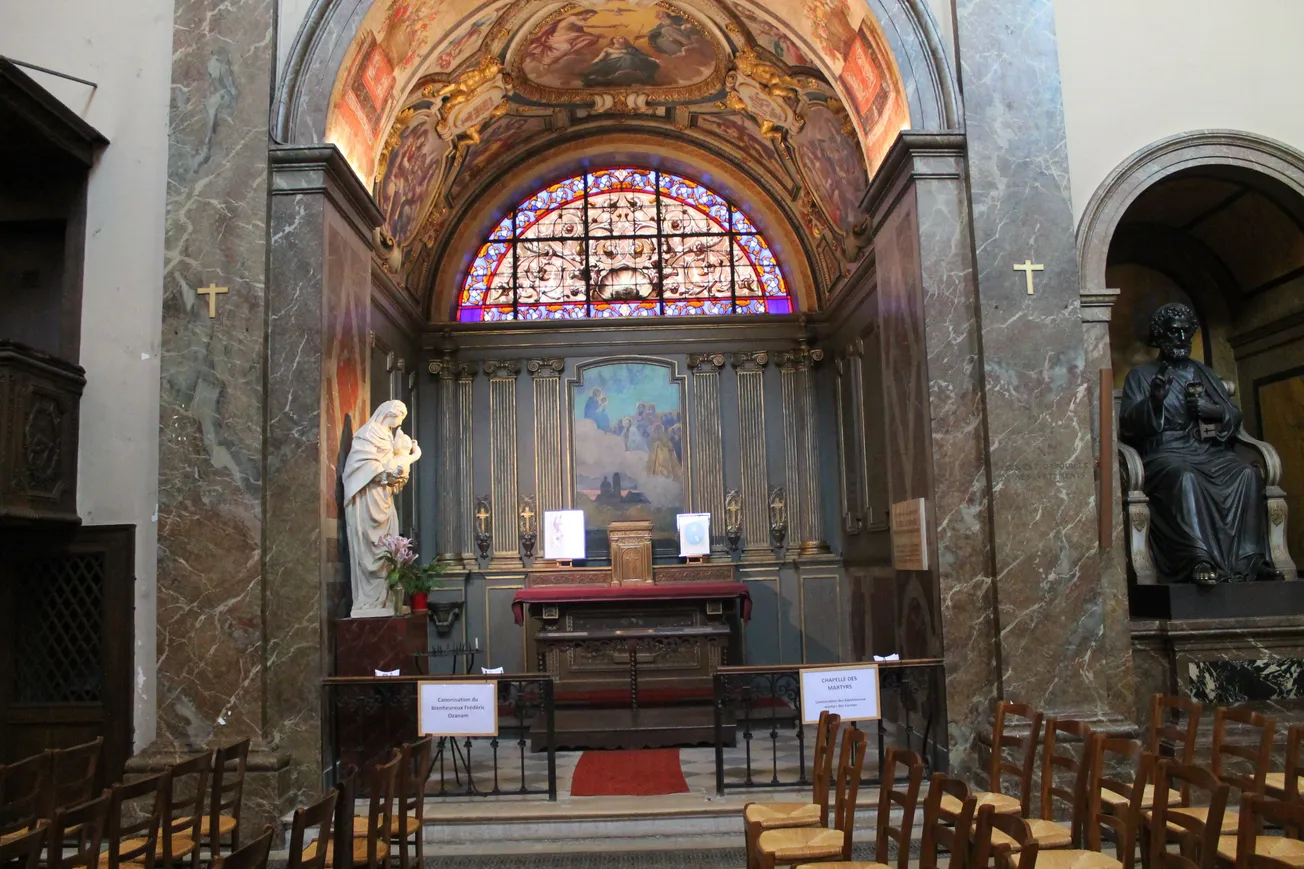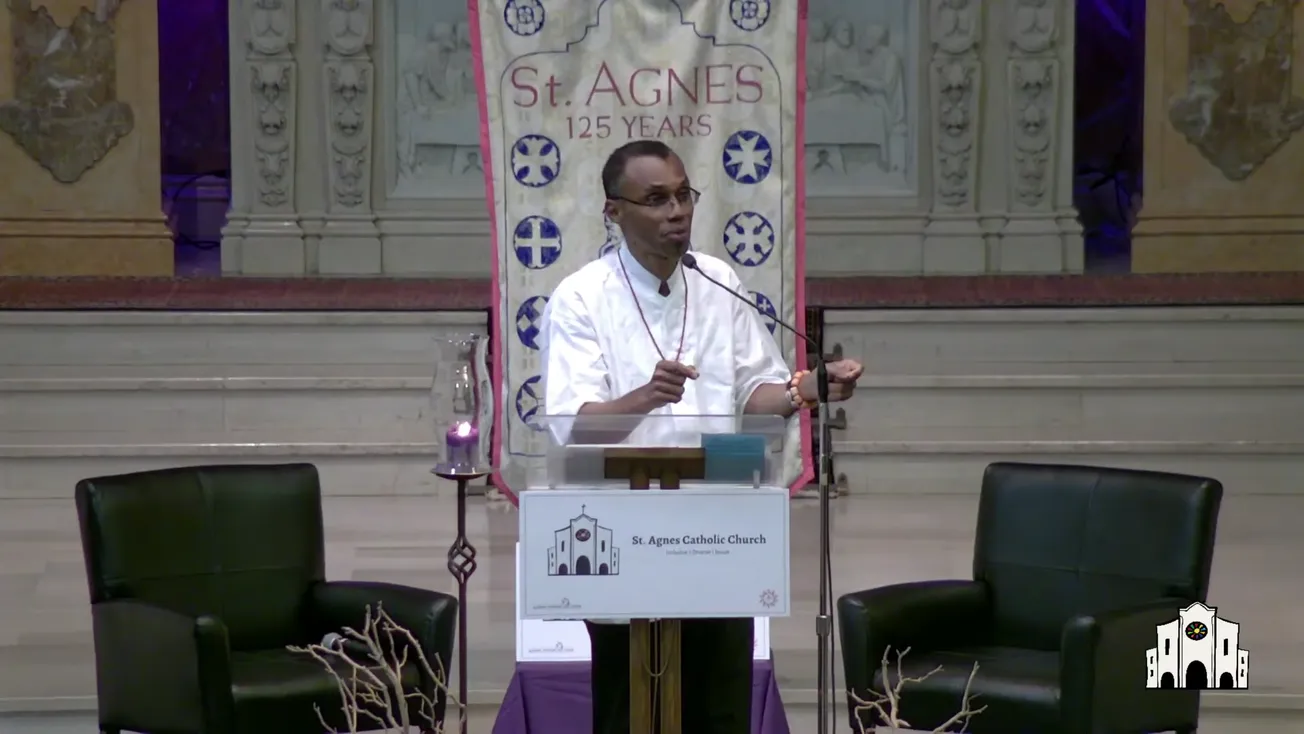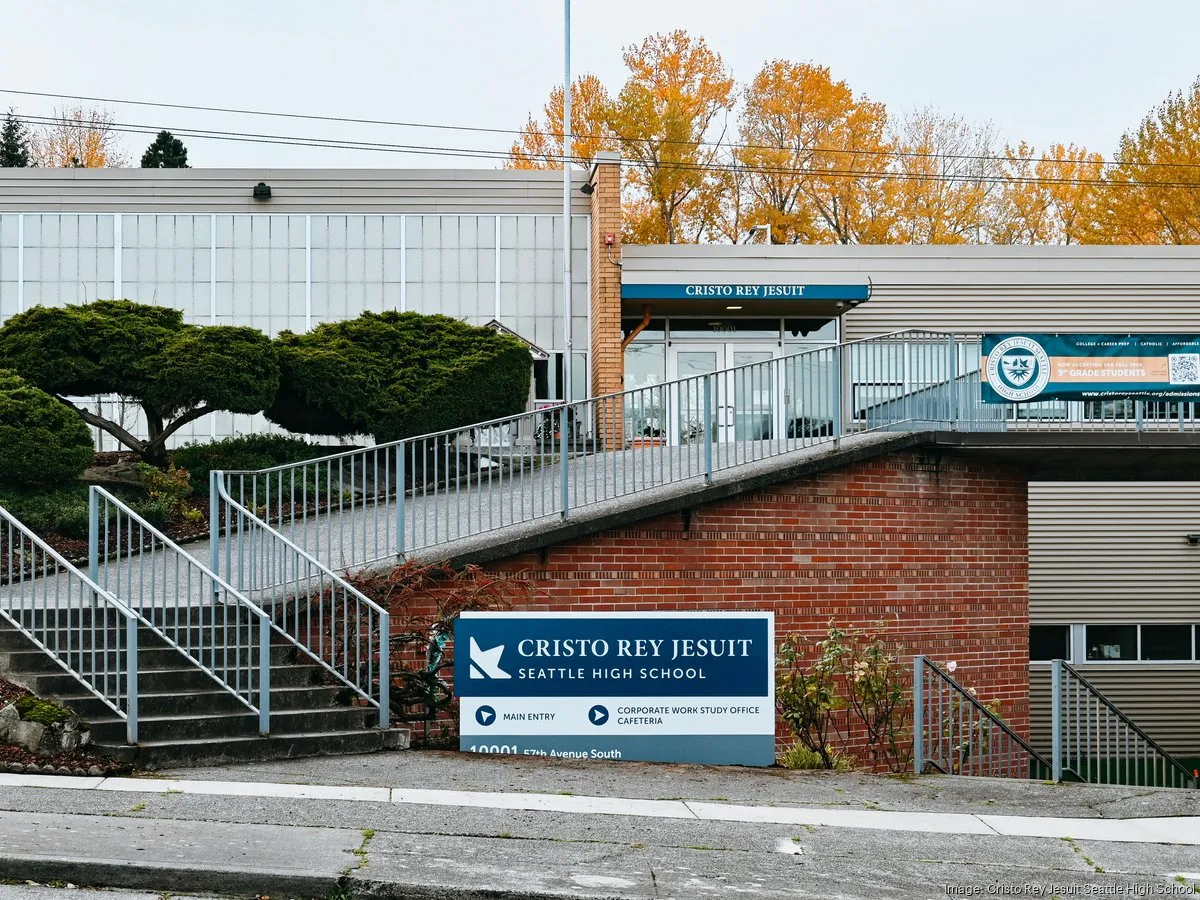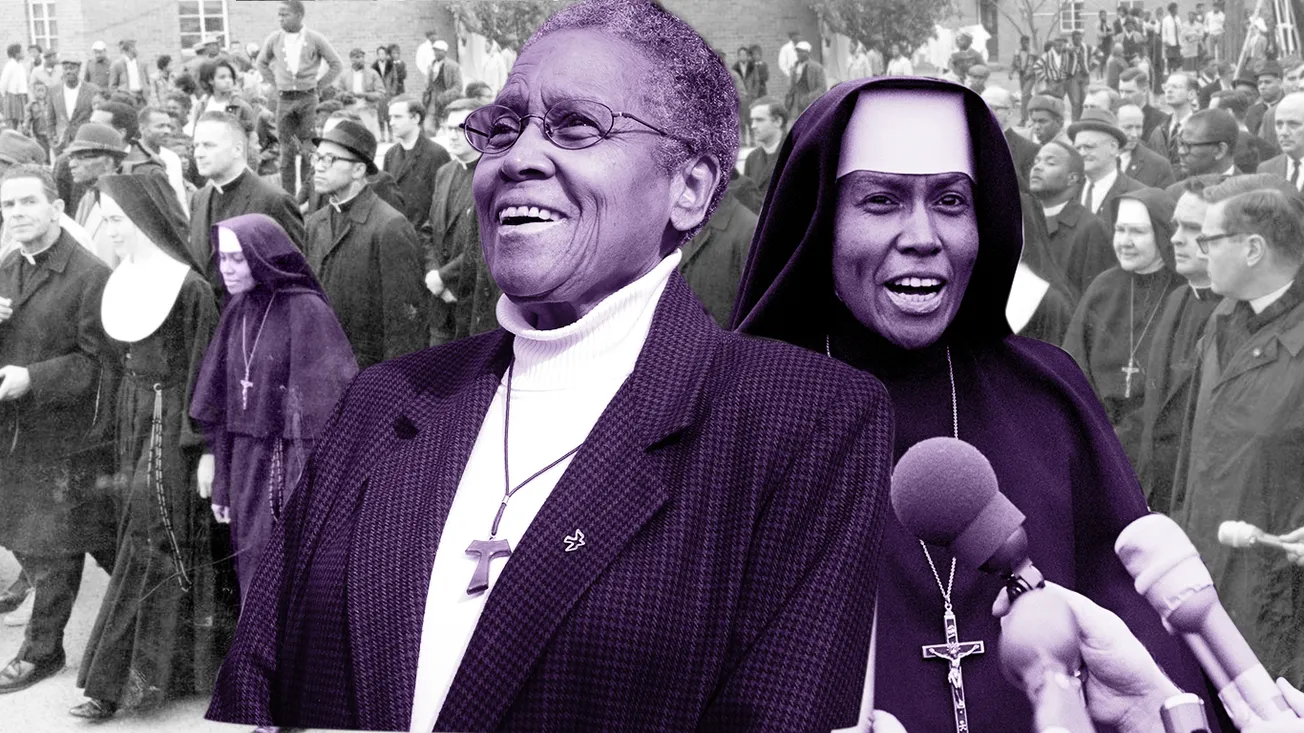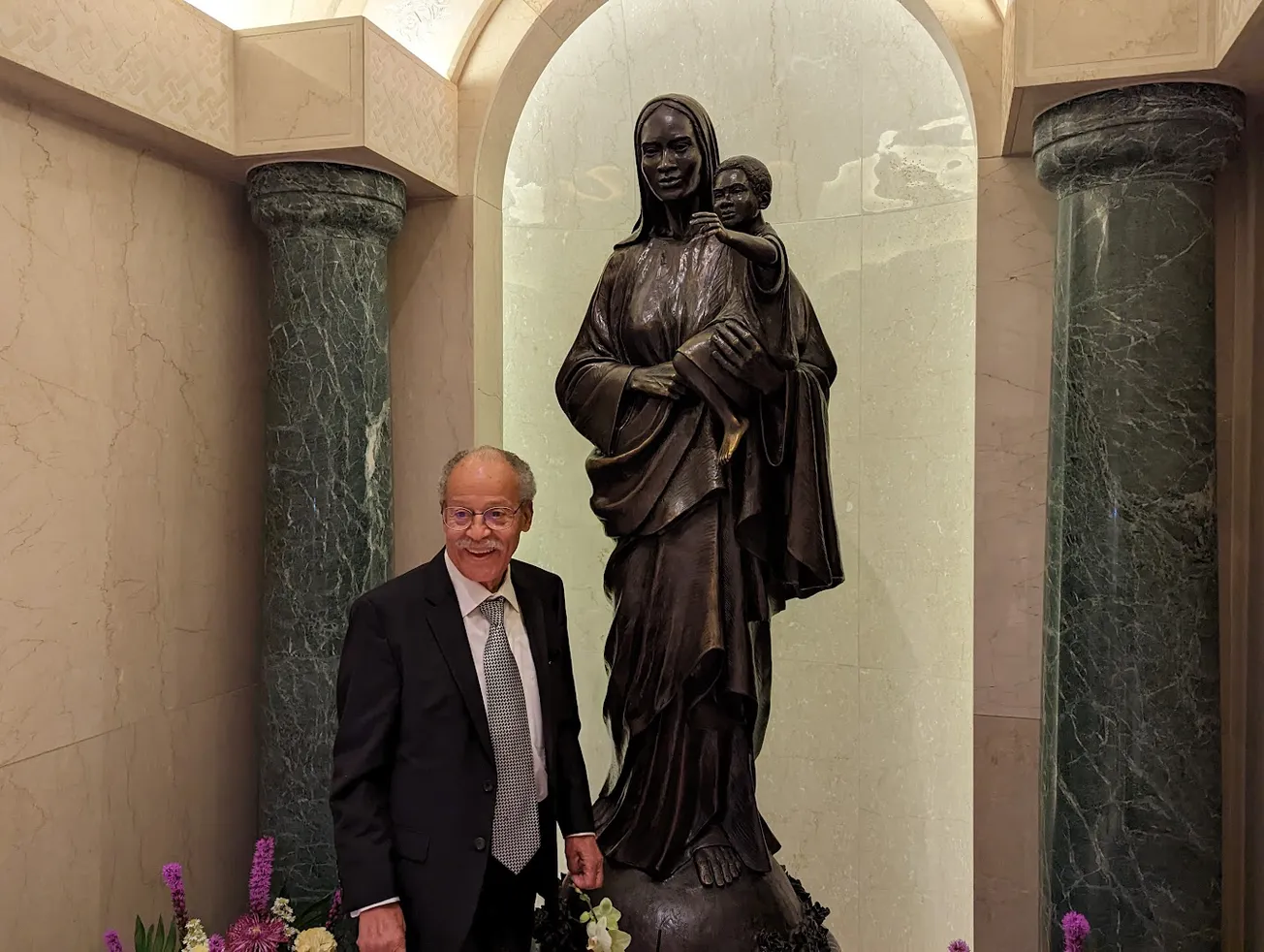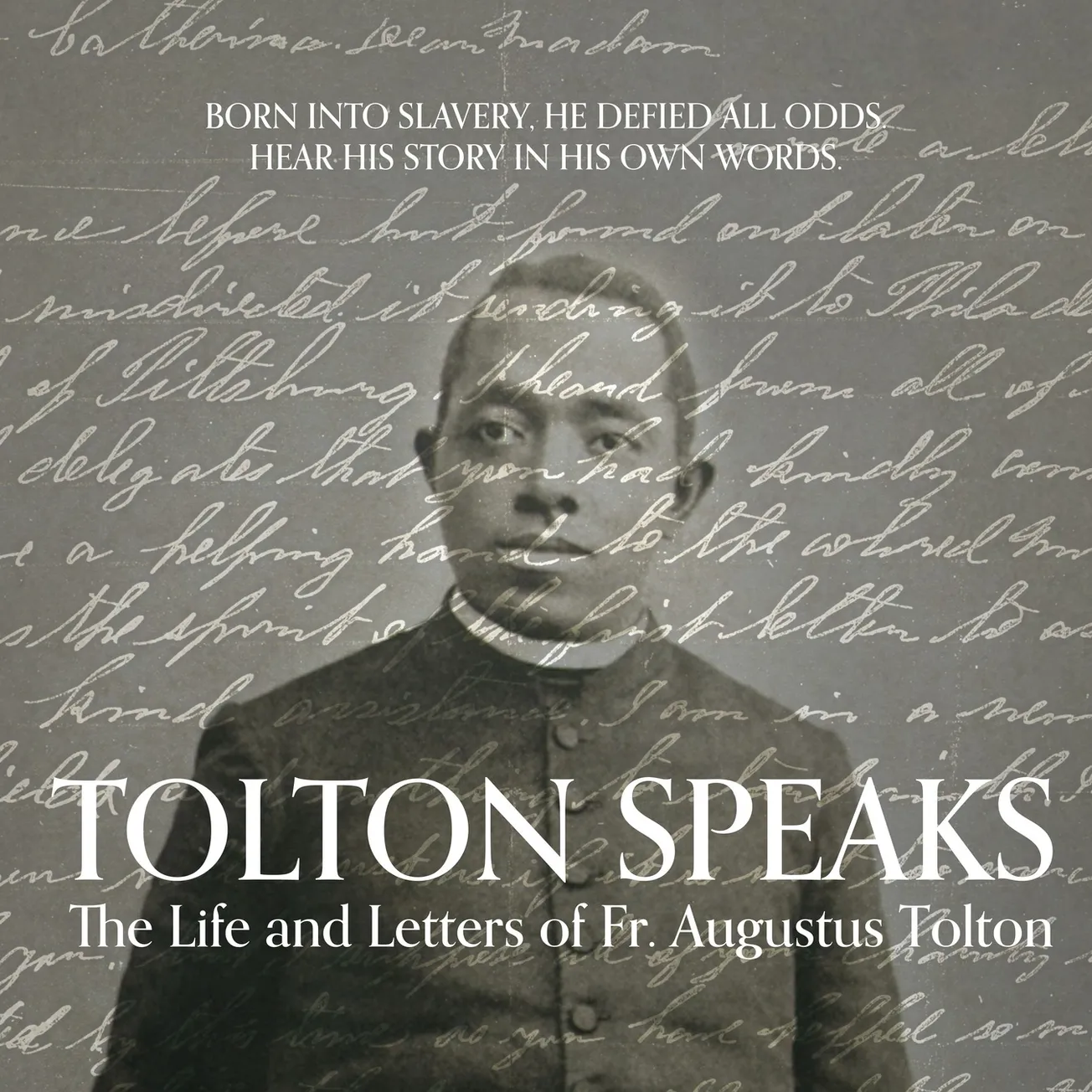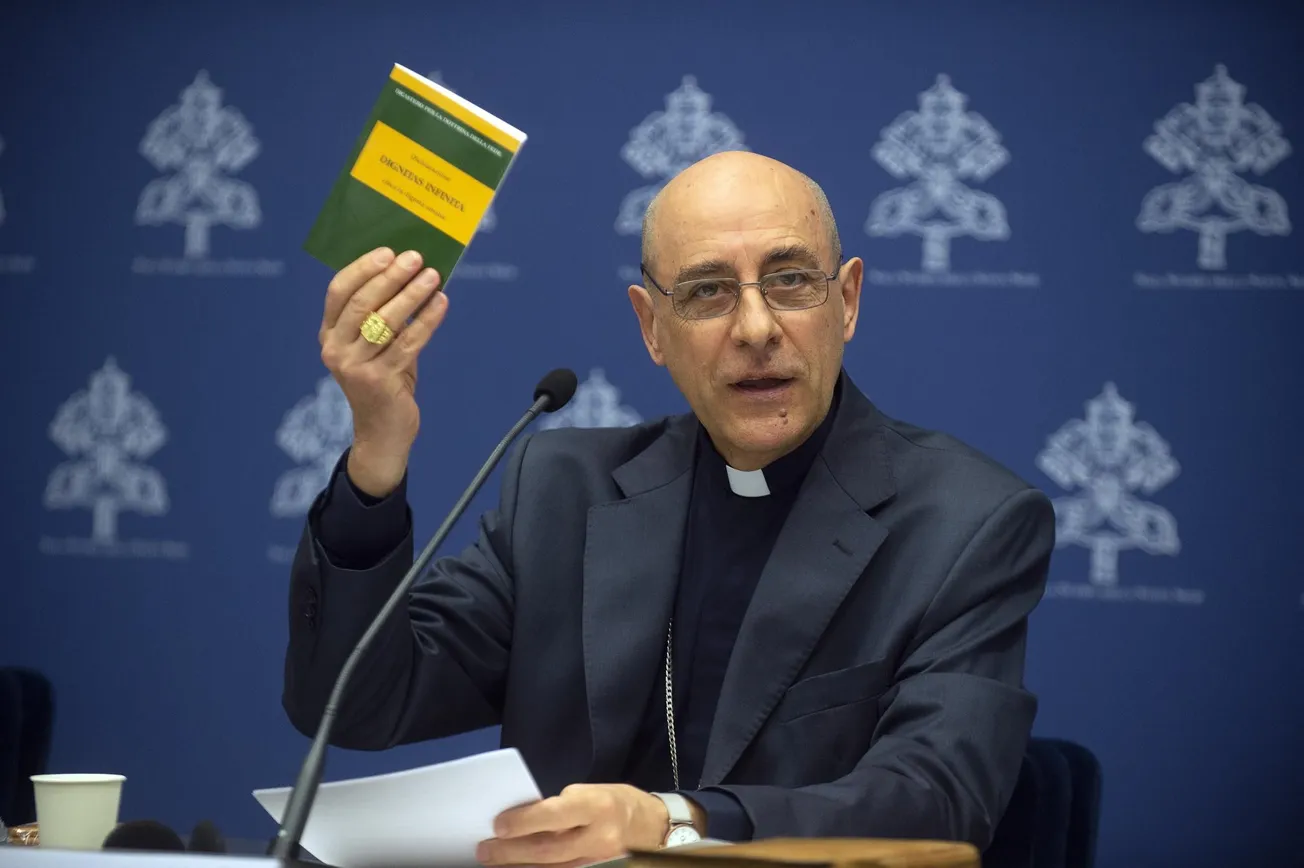The eye-popping foundation formed by the Jesuits to address their infamous Georgetown slave sale has raised less than $200,000 since its creation last March, according to a new report in the New York Times.
Joseph Stewart, president of the Descendants Truth & Reconciliation Foundation and himself a descendant of the 272 African Americans sold by the order in 1838, has called the paltry sum a result of reticence from those he says feel they “never enslaved anyone and thus do not ‘owe’ anyone anything.”
“It is becoming obvious to all who look beyond words that Jesuits are not delivering in deed,” he said in a recent letter to the Jesuits’ superior general Fr Arturo Sosa, SJ.
“The bottom line is that without your engagement, this partnership seems destined to fail.”
The Jesuits originally set a five-year goal for $100M to be raised, which they are not on track to reach, and a later goal of $1 billion. Stewart, however, now demands that the order raise $100M by next summer and $1B by the same date in 2029.
“It’s just going too slow. We need to accelerate it,” he said in the letter, which has not been publicly released.
The news comes hot on the heels of Sosa’s largely unannounced (and unpublicized) visit to the United States earlier this month, which drew fire for its secrecy and apparent disconnect from any possible public overtures related to Jesuit slaveholding.
Even so, meetings on the topic are said to have occurred among him and other Jesuit leaders during his visit, though without any public results before the foundation’s fundraising ills hit the newswaves. (An $800 Ignatian anti-racism retreat gathered a number of Black and other Jesuit leaders from August 3-12 in Mississippi shortly after Sosa's arrival stateside.)
Sosa himself, elected superior of the world’s largest religious order in 2016, has yet to publicly comment on the issue of US Jesuit slaveholding, though a private communication from him to Stewart several years ago has since been posted on the foundation’s website.
“The bottom line is that without your engagement, this partnership seems destined to fail,” Stewart wrote to Sosa in his new letter.

Meanwhile, descendants not connected to Stewart or the relatively small GU272 Descendants Association have raised a number of red flags about the foundation’s leadership and operations, including the possibility that recent plantation land sales by the Jesuits may have been illegal.
Dating back to 2009, the Jesuits began selling land they formerly used for chattel slavery, the proceeds of which were discussed as possibly going to the foundation’s trust. That money would then have been used for programs benefiting the larger community of GU272 descendants.
In lieu of direct cash payments, the foundation's budget includes supporting "individuals, organizations and communities" working to foster anti-racism and atonement for slavery generally (50%), financing educational goals for descendants (25%), and covering "emergency needs" for elderly or "infirm" descendants living in poverty (<25%).
An initial $57M land sale, however, has reportedly served mostly to fund programs for the Jesuits themselves, and some descendants fear the land sold—without their consultation—may contain the remains of their ancestors.
Chanda Norton, a descendant of the African Americans who remained in Jesuit bondage in Maryland after the sale of the GU272, has long criticized the Gu272 Association for allegedly stonewalling the larger descendants community. As such, she says the association’s agreement with the Jesuits to form the foundation—which involves minimal financial commitment from the Jesuits themselves—was doomed from the start.
“It's not surprising,” she told BCM last week.
“It seems the Jesuit organization hasn’t really atoned, if they can’t comply with this inexcusable agreement.”
Sandra Green Thomas, a former president of the Descendants Association who has since been outspoken against Stewart and the association's secretive dealings with the Jesuits, also called this week's news more of the same.
“The proposed foundation doesn’t meet the needs or desires of the descendant community,” she said on social media.
“Thus, it is destined to fail.”
Green Thomas and nearly 200 other descendants signed a petition created last year by Norton and others, also addressing Sosa and calling for a reconsideration of the deal made by US Jesuits to create the foundation and its controversial funding model.
“We, the Descendants of the Maryland Mission Slaves request you to investigate and establish the truth of all relevant matters; correct what needs to be corrected; and improve everything and neglect nothing that would promote a union of hearts,” it reads.
“You have an important role to play in fostering racial healing between the Society of Jesus and Descendants of the Maryland Mission Slaves.”
Nate Tinner-Williams is co-founder and editor of Black Catholic Messenger, a seminarian with the Josephites, and a ThM student with the Institute for Black Catholic Studies at Xavier University of Louisiana (XULA).


